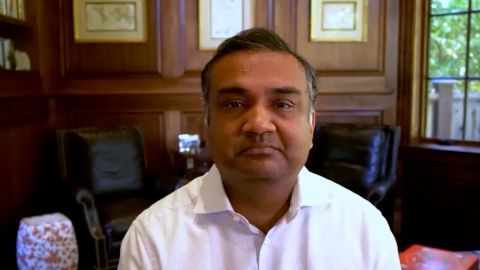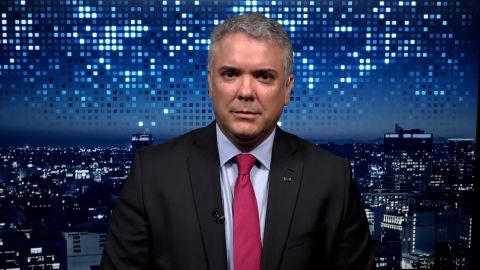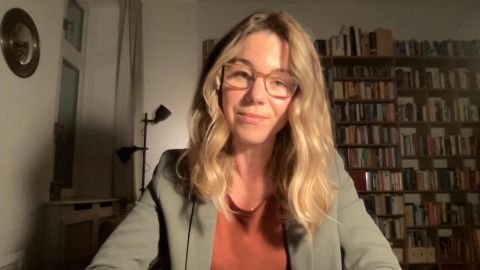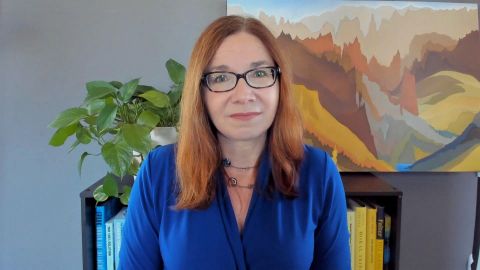Read Transcript EXPAND
CHRISTIANE AMANPOUR: First, I want to ask you about a very real situation. And that is the Haitians trying to get across the Southern border into the United States. We understand that tens of thousands, perhaps 30,000, Haitians are in your own country trying to do the very same. Biden obviously wants to deter them. It doesn’t seem to be working.
IVAN DUQUE, COLOMBIAN PRESIDENT: Well, Christiane, what is more complicated is that people are leaving Haiti for multiple reasons. As you know, the bad social and economic effects derived from the pandemic, that’s issue number one, the natural disaster derived from the earthquake that hit them back again, and something that is also more complicated, and is the instability, the political and institutional instability. I think this is an issue that requires to have a better migration coordination policy among the countries and also to limit the illegal trade of migration that we have seen in many places, and especially in our country.
AMANPOUR: And, meantime, what looked like manifest cruelty by the U.S. border guards on their horses. As president of a Latin American country dealing with so many migrants and refugees right now, what did you make of that?
DUQUE: Well, Christiane, the decision that we made in Colombia, we have 1.8 million Venezuelan migrants in our country. They were basically invisible. People were coming from the border with frozen bones, lacking the access to services, lacking the access to vaccination. And we decided to do something bold without being a rich country. And it is to grant temporary protection status to that 1.8 million people. We have 800,000 to be given in the first semester of 2022. So we can do something fraternal, with technology with transparency, and in order to evaluate and understand that, when people have the opportunities, once they locate, they can contribute to social development. Our approach has been a holistic approach. And I think it has made the contrast of what fraternity can do vis-a-vis the bad examples of xenophobia that we have seen in many parts of the world. I think Colombia wants to set an example and also to show the world that we can do something much better in an intelligent way to manage migration.
About This Episode EXPAND
Climate scientist Katharine Hayhoe discusses her new book “Saving Us.” Colombia’s outgoing president Iván Duque reflects on his time in office. The New York Times’ Berlin bureau chief Katrin Bennhold reflects on the end of Angela Merkel’s 16-year chancellorship in Germany. YouTube’s Chief Product Officer Neal Mohan explains how the platform is handling the misinformation crisis.
LEARN MORE



